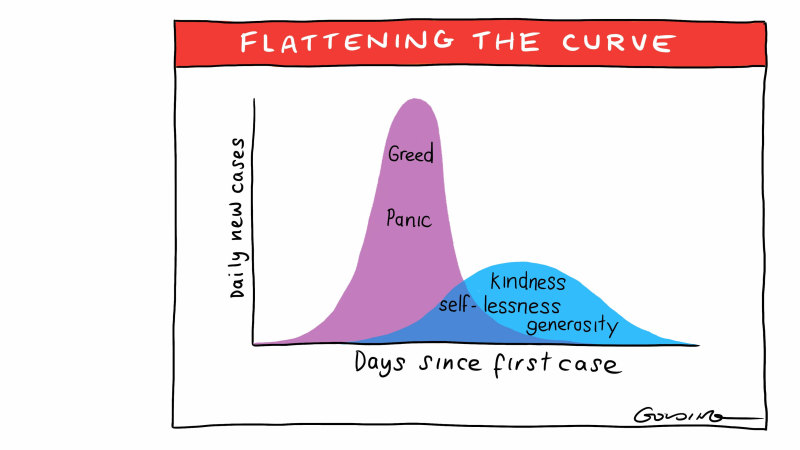Meaningful consultation is needed

Save articles for later
Add articles to your saved list and come back to them any time.
Matt GoldingCredit: .
To submit a letter to The Age, email [email protected]. Please include your home address and telephone number. No attachments, please include your letter in the body of the email. See here for our rules and tips on getting your letter published.
Meaningful consultation
The most basic principle in any policy planning, whether by governments, local councils, businesses, schools or universities, is to meaningfully consult the principal stakeholders. It seems to me this is all the Voice is seeking to enshrine in the Constitution – meaningful consultation with the key stakeholders.
From this perspective, a Yes vote should be a no-brainer.
Tony Guttmann, St Kilda West
MCG crowd, take a bow
All plaudits to the (mainly) Collingwood crowd on Friday night who resisted the call to boo the Welcome to Country ceremony at the MCG. And further plaudits to those who chose to stand and applaud as a mark of respect.
Graeme Gardner, Reservoir
Let the light in
Dark colours absorb light. Light colours reflect light. This is the main reason why large, dark buildings are oppressive, and must be given due consideration in urban planning. Dark buildings overshadow everything around them and suck out the energy.
In my view, the charm of Camberwell Junction was ruined when large, dark buildings were built at that five-way intersection in the Burke Road valley. Allowing light to reflect and flow through urban and business centres lifts mood and adds life.
Emma Borghesi, Rye
Widen COVID inquiry
As a teacher with 37 years’ experience, I am devastated that the much-needed examination of health policy and inter-governmental relations during the pandemic has been lost to politics.
Peter Hartcher (Comment, 23/9) has captured the key concerns perfectly. Even now, the social and educational impacts of COVID-19 remain, which teachers deal with on a daily basis.
Imagine yourself at the age of 11, entering grade 6 in 2020. You miss two years of face-to-face schooling. Your next full year of school is 2022 as you enter year 8.
The social and educational losses endured by those young people were immense. Millions of others could tell the same story.
My daughter entered year 11 in 2020 and spent almost all of her two years in VCE on Zoom lessons. Those in her cohort across Australia went from year 10 to further study and/or work with inevitable gaps in their learning, denied the important social markers of in-person graduation ceremonies. The stress on families was also immense.
We need a royal commission not to tear down governments but to examine the serious and lasting impact of their decisions. We need a frank conversation about state and federal powers in the area of public health and pandemics.
We need the states to seriously consider referring some of their powers in this area to the Commonwealth.
It is a terrible disappointment that for political reasons, a thorough examination across all areas of government has been dodged.
Peter Farrar, Brighton East
Learn from past
I was an architecture student in the mid-1960s when the Housing Commission towers were built. We students protested then that to refurbish existing terrace houses would cost on average $3000 while building the same accommodation density in towers cost $17,000 a unit.
No account was taken of the social disruption, and the aesthetics of design were almost entirely secondary to the engineering considerations of building concrete card houses. Communities were destroyed by the destruction of terrace houses and neighbourhoods.
We were given a tour of the unfinished buildings and what remains in my mind is the awkward proportions of rooms and windows, the high level of noise transmission and the remoteness of high-level apartments from ground-level playgrounds.
At that time, England was demolishing similar post-war blocks because they were sociological disasters. The Bolte government refused to take notice of this overseas experience.
While the aim of getting rid of the existing awful buildings is admirable, what they are replaced with, and how it is managed, are crucial. The new accommodation should be built before the old buildings are demolished so that communities could move as a whole and remain intact.
If this is not done, given the housing shortage, where will residents live during construction?
Michael Meszaros, Alphington
Hobart alternative
I much appreciated the article ″The Price to Play″ (Good Weekend, 16/9) about the proposed AFL stadium on Hobart’s waterfront.
If the introduction of a Tasmanian team into the AFL is to be the inspiring and unifying investment that footy folk say they want, the 23,000-seat stadium the AFL says is necessary can readily be delivered by upgrading the University of Tasmania stadium at York Park in Launceston which seats almost 20,000.
The Hobart community is in the midst of a good conversation about what to do with the old port railyards, and the city council has a formal plan under consideration.
I hope Melburnians can help us persuade the AFL to renegotiate a genuinely unifying way forward. Without it, Tasmania is going to tear itself apart over yet another bad development proposal.
Alistair Graham,
West Hobart, Tas
Lucky 13th for Pies?
If Collingwood win the grand final, it will be their first grand final victory in September since 1958. The 1990 grand final was played in October, as was the club’s victory in 2010. Collingwood has played in 12 grand finals in September since 1958, all of which were lost or drawn: 1960/4/6, 1970/7/9, 1980/1, 2002/3, 2010/18.
This year’s is on September 30. Will it extend the hoodoo to 65 years, or will it be a lucky 13th?
Howard Marosi, North Carlton
Most Viewed in Politics
From our partners
Source: Read Full Article
